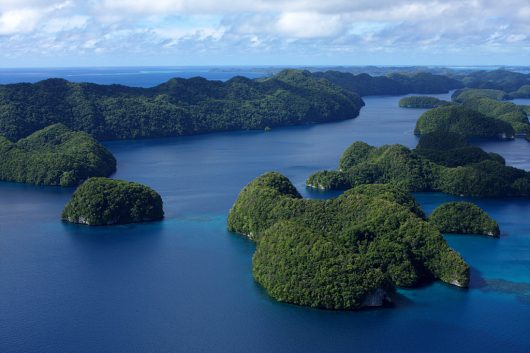Six Things to Know About Poverty in Palau

The Pacific islands are susceptible to poverty due to their remoteness, geographic spread, frequency of natural disasters, high level of exposure to overseas markets, small internal markets and limited natural resources. However, of these Oceanic nations, the island of Palau seems to be struggling the least. Here are six facts about poverty in Palau.
- Palau has one of the highest standards of living in Pacific countries, with a GDP of $232.9 million, an adult literacy rate of 97% as of 2015 and a life expectancy of 69. However, the Micronesian nation still relies heavily on United States foreign aid through the Compact of Free Association. The compact includes a wide range of federal programs set to continue until 2030.
- Of the population of 21,864, an estimated 24.9% individuals are affected by poverty in Palau. Most of those affected are among the rural population, who rely on small-scale agriculture and fishing for their livelihoods.
- The mortality rate for children under the age of five is 22 per 1,000 live births. In comparison, the United States’ child mortality rate is roughly six per 1,000. Skilled health personnel attend nearly all births.
- In 2016, the amount of Palau’s population considered obese was 55.3%. A 2006 school health survey found 35% of children were either overweight or at risk. The prevalence of obesity and malnutrition can be attributed to the introduction of the western diet, which provides consumers more calories for less money and nutritional value.
- For nearly two decades, Palau has sought legal reform regarding domestic violence. While there are statutes prohibiting and punishing violent behavior, no statute specifically addresses domestic violence. However, the Palau Family Protection Act aims to offer protection and deter further acts of family maltreatment, including violence, abuse and neglect. The Act also seeks to expand police officers’ ability to assist victims and enforce the law effectively.
- Following the El Nino weather phenomena in 2016, Palau declared a national state of emergency due to drought conditions. UNICEF provided the Ministry of Health with pre-positioned emergency health and nutrition supplies including a comprehensive health kit that could serve 1,000 people. In response to the drought, household water containers were distributed to community health centers to be used for drinking water storage.
Greater commitment to development initiatives has played a key role in keeping poverty in Palau at bay. In a broader context, the principles of emphasizing foreign aid and diplomacy can possibly be applied to other Oceanic nations and eventually strengthen the autonomy of those respective nations.
– Casie Wilson
Photo: Flickr
